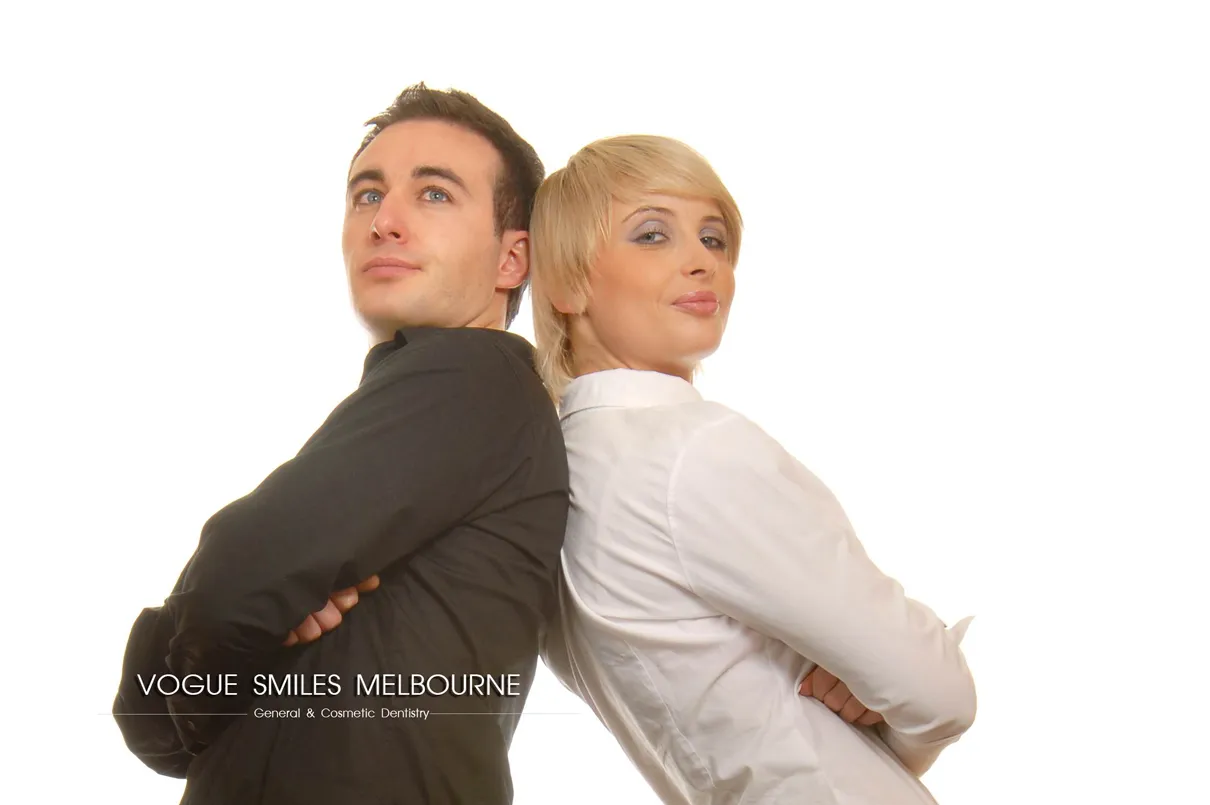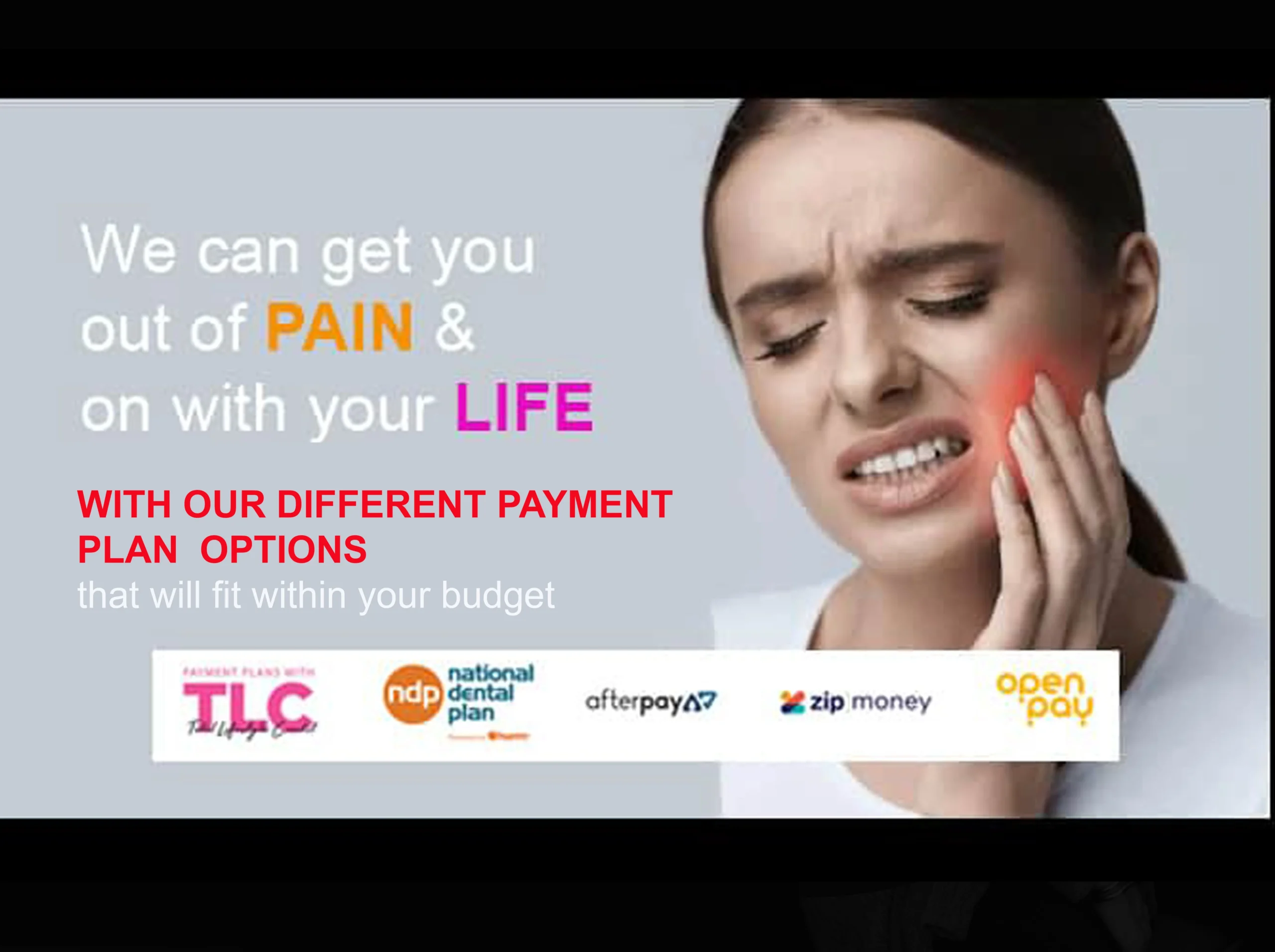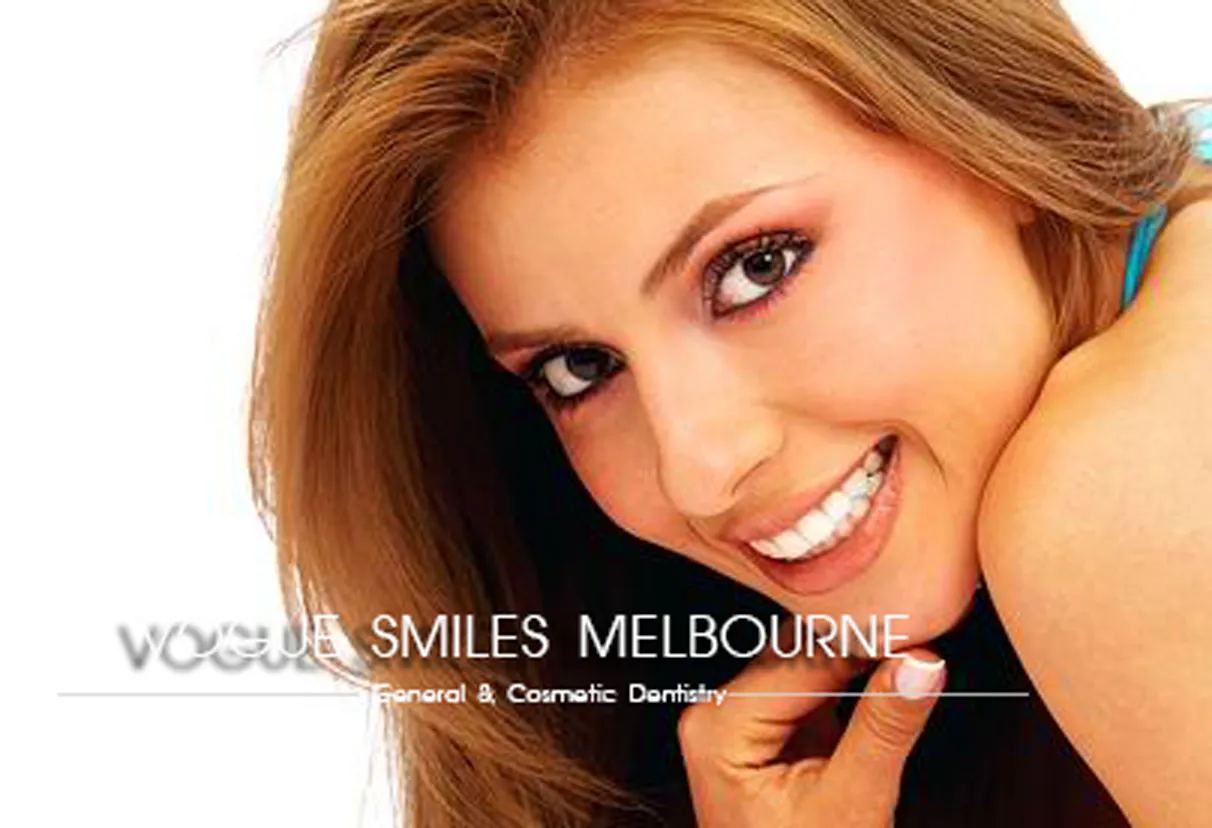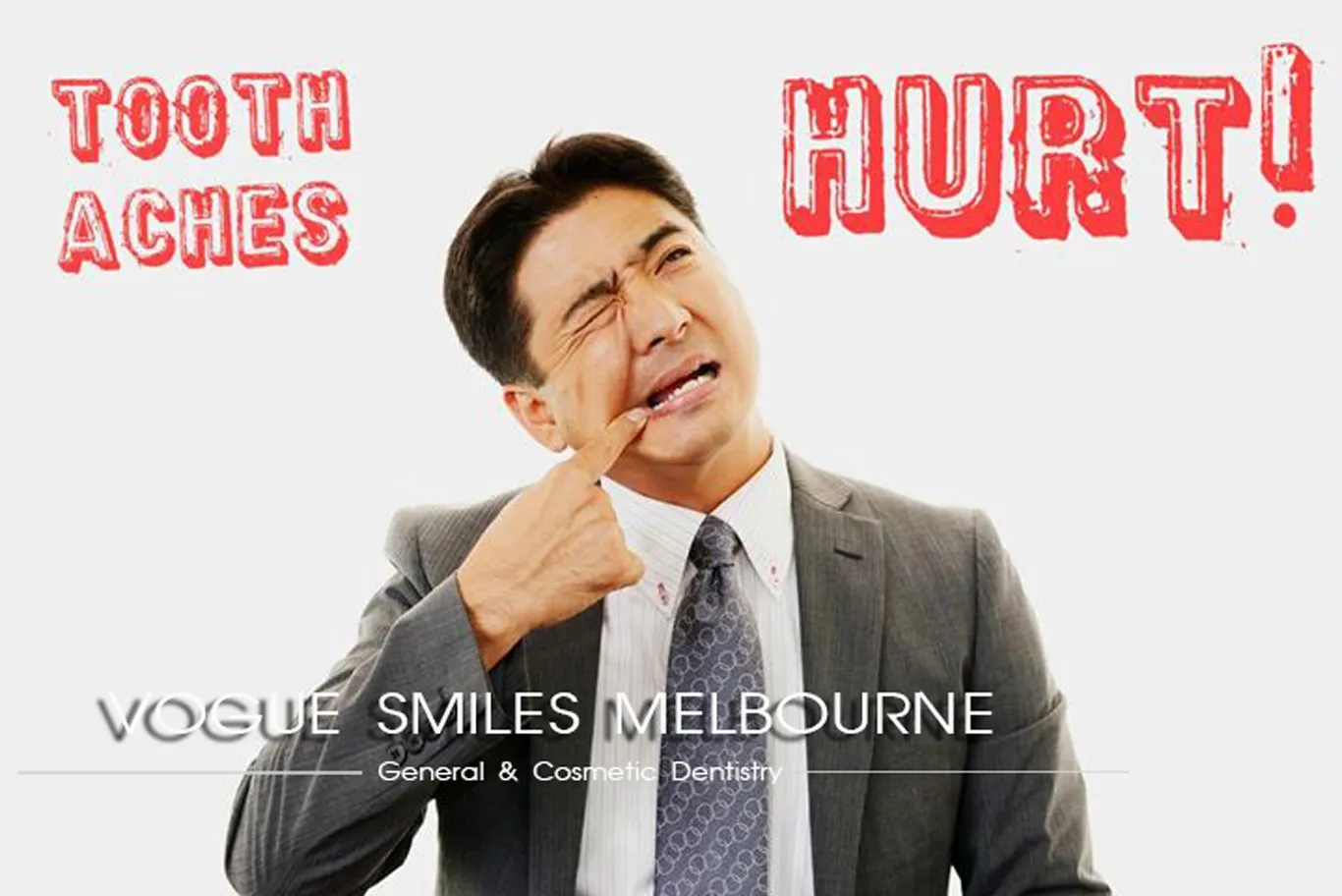✨ Immediate pain relief strategies you can use at home tonight
✨ Find affordable emergency dental care in Melbourne CBD & Noble Park North
✨ Payment plans and financial assistance options available
✨ Know when to visit emergency rooms vs. dental clinics
✨ Access community health centers with sliding fee scales
✨ Protect yourself from dental emergencies with prevention tips
✨ Navigate Medicare and government assistance programs
✨ Build your dental emergency fund for future peace of mind
📞 Call Vogue Smiles Melbourne and Noble Park today for a comprehensive general and smile makeover treatment — offering competitive pricing, bundled porcelain veneer specials, interest-free dental plans, and Superannuation access assistance.
Call us now:
☎9629-7664 | 0413 014 122
REQUEST AN ONLINE PERSONALIZED QUOTE ➤
REQUEST FOR A FREE TELECONSULTATION ➤
DISCLAIMER: The following tips are for informational purposes only and are intended to provide temporary relief for severe tooth pain when access to painkillers or professional dental care is not immediately available. If your symptoms worsen, involve swelling, fever, difficulty breathing or swallowing, or persistent throbbing, it is crucial to seek care from an emergency dentist if available—or visit the nearest hospital emergency department. These home remedies are not a substitute for professional dental treatment.
THE HARSH REALITY: WHEN DENTAL PAIN MEETS FINANCIAL STRESS
Picture this: It’s 2 AM on a Sunday, and you’re pacing your Melbourne apartment with excruciating tooth pain. Your face is swollen, you can barely think straight, and you’re faced with an impossible choice. Do you endure the agony until Monday, or do you seek emergency care knowing it could cost hundreds or thousands of dollars you simply don’t have?
You’re not alone in this nightmare scenario. According to the Australian Institute of Health and Welfare, over 2.3 million Australians avoid or delay dental treatment due to cost concerns. In Melbourne CBD and Noble Park North alone, emergency departments see thousands of patients each year seeking relief from dental pain – many of whom are uninsured or underinsured.
The brutal truth is that dental emergencies don’t care about your budget. A severe infection won’t wait for your next payday. A knocked-out tooth won’t pause while you figure out payment arrangements. But here’s what most people don’t realize: you have more options than you think, even when money is tight.
The psychological toll of dental emergencies extends far beyond physical pain. Many patients describe feeling trapped between unbearable discomfort and financial ruin. The shame of not being able to afford basic healthcare can be overwhelming. Sleep becomes impossible, work performance suffers, and relationships strain under the stress of chronic pain and mounting bills.
But there’s hope. This comprehensive guide will show you exactly how to navigate dental emergencies in Melbourne without breaking the bank. We’ll explore immediate pain relief techniques you can use tonight, uncover hidden resources for affordable care, and help you build a safety net for future dental needs.
Throughout Melbourne CBD and Noble Park North, there are networks of compassionate healthcare providers, community programs, and financial assistance options specifically designed for people in your situation. The key is knowing where to look and how to access these resources when you need them most.
DENTAL EMERGENCIES: KNOWING WHAT NEEDS IMMEDIATE ATTENTION
True Medical Emergencies – Get Help Now
Some dental situations are genuine medical emergencies that require immediate professional attention, regardless of cost. These conditions can be life-threatening and warrant a trip to the emergency department at hospitals in Melbourne CBD or Noble Park North.
Severe facial swelling that affects breathing or swallowing: This indicates a serious infection that’s spreading rapidly. The swelling can block your airway, making this a true emergency. Don’t wait – head to the nearest emergency department immediately.
Uncontrolled bleeding from dental trauma: If bleeding from your mouth won’t stop after 20 minutes of direct pressure with clean gauze, you need professional medical intervention. This could indicate damage to major blood vessels.
Knocked-out permanent teeth: Time is critical here – you have roughly 30 minutes to 2 hours for successful reimplantation. Handle the tooth by the crown only, rinse gently if dirty, and try to place it back in the socket if possible. If not, store it in milk or saliva.
Severe infections with fever and systemic symptoms: When dental infections spread beyond the mouth, they can become septic. Symptoms include high fever, chills, difficulty swallowing, and general illness. This requires immediate antibiotic treatment.
Fractured jaw or suspected facial bone fractures: Usually the result of trauma, these injuries require immediate medical evaluation and often surgical intervention. Don’t attempt to realign bones yourself.
Urgent Situations – Painful But Manageable
These conditions cause significant discomfort but can often be managed temporarily while you arrange affordable care. Many of these situations can wait until business hours when you have more treatment options available.
Severe toothache without facial swelling: While incredibly painful, isolated tooth pain without infection signs can often be managed with proper pain medication and temporary measures until you can access affordable dental care.
Broken or cracked teeth without nerve exposure: If the tooth isn’t causing severe pain and there’s no bleeding from the pulp, this can usually wait for scheduled treatment. Avoid chewing on that side and protect the area.
Lost fillings or crowns causing pain: Temporary filling material from the pharmacy can provide relief until you can arrange proper restoration. Clean the area gently and avoid extreme temperatures.
Soft tissue injuries and cuts: Most cuts inside the mouth heal well with proper care. Rinse with salt water, apply pressure to control bleeding, and monitor for signs of infection.
Orthodontic wire injuries: Protruding wires can be temporarily covered with orthodontic wax or even clean cotton. Schedule an appointment with your orthodontist during business hours.
Non-Emergency Situations Often Mistaken for Crises
Many dental problems feel urgent due to discomfort or anxiety but don’t actually require emergency treatment. Understanding the difference can save you significant money and stress.
Mild to moderate toothache: If you can manage the pain with over-the-counter medications and there’s no swelling or fever, this can typically wait for a scheduled appointment during regular business hours.
Sensitivity to hot or cold: While uncomfortable, temperature sensitivity alone rarely indicates an emergency. Use desensitizing toothpaste and avoid trigger temperatures while scheduling routine care.
Minor chips or cosmetic damage: Small chips that don’t cause pain or expose the nerve are purely cosmetic issues. These can be addressed during routine dental visits.
Loose teeth without trauma: If a tooth becomes loose gradually due to gum disease or other chronic conditions, this isn’t an emergency situation requiring immediate expensive treatment.
Gum irritation or minor bleeding: Some gum bleeding during brushing or flossing is common and doesn’t require emergency intervention. Improve your oral hygiene routine and schedule a cleaning when convenient.
IMMEDIATE PAIN RELIEF: WHAT YOU CAN DO RIGHT NOW AT HOME
Over-the-Counter Pain Management That Actually Works
When dental pain strikes in Melbourne CBD or Noble Park North and you can’t immediately access professional care, proper pain management becomes crucial. The right combination of medications can provide significant relief while you arrange affordable treatment.
Ibuprofen: Your strongest ally against dental pain. Take 600-800mg every 6-8 hours (don’t exceed 3200mg in 24 hours). Ibuprofen reduces both pain and inflammation, making it particularly effective for dental issues. Take with food to prevent stomach irritation.
Paracetamol combination therapy: You can safely combine paracetamol (500-1000mg every 4-6 hours) with ibuprofen for enhanced pain relief. This combination often works better than either medication alone and is safer than increasing doses of a single drug.
Topical anaesthetics for targeted relief: Products like Bonjela or Orajel can provide temporary numbness directly to the affected area. Apply sparingly with a clean finger or cotton swab. These provide quick but short-lived relief.
What to avoid: Never place aspirin directly on teeth or gums as it can cause chemical burns. Avoid aspirin entirely if you have bleeding issues. Don’t exceed recommended doses of any medication, as this can be dangerous and won’t provide better pain relief.
Safe Home Remedies and Temporary Solutions
While waiting to access affordable dental care in Melbourne, these proven home remedies can provide substantial relief when used correctly.
Salt water rinses – nature’s antiseptic: Dissolve 1/2 teaspoon of salt in a cup of warm water. Gently swish for 30 seconds, focusing on the affected area. Repeat every 2-3 hours. This reduces bacteria, decreases swelling, and promotes healing.
Cold compress application: Apply an ice pack wrapped in a thin towel to the outside of your cheek for 15-20 minutes at a time. Wait at least 20 minutes between applications. This reduces swelling and numbs pain. Never apply ice directly to skin.
Temporary filling materials: Pharmacies in Melbourne CBD and Noble Park North sell temporary filling compounds like Dentek. Clean the cavity gently, dry the area, and press the material firmly into place. This can last several days to weeks if properly applied.
Dental wax for sharp edges: Cover broken teeth or protruding wires with dental wax to prevent cuts to your tongue and cheeks. Roll a small amount into a ball, dry the area, and press firmly into place.
Proper tooth preservation for knockouts: If a permanent tooth is knocked out, handle it only by the crown. Rinse gently with water if dirty, but don’t scrub. Try to reinsert it immediately, or store in milk, saliva, or saline solution. Time is critical for successful reimplantation.
Dangerous Mistakes to Avoid During Dental Emergencies
Well-meaning home remedies can sometimes make dental emergencies worse. Avoid these common mistakes that could complicate your condition and increase treatment costs.
Heat application can be harmful: Never apply heat to dental pain or swelling. Heat increases blood flow and can spread infections rapidly. Always use cold for dental pain relief.
Alcohol-based pain relief is dangerous: Don’t use whiskey, vodka, or other alcohol as pain relief. Alcohol can irritate tissues and interfere with healing. It also doesn’t provide effective pain relief for dental issues.
Never attempt home dentistry: Don’t try to drill cavities, extract teeth, or cut tissues yourself. These attempts almost always make problems worse and can cause serious infections or injuries.
Avoid certain medication combinations: Don’t take multiple NSAIDs together (like ibuprofen and aspirin). Be cautious with blood thinners if you have bleeding. Always read labels and consult a pharmacist if unsure about interactions.
Don’t ignore allergic reactions: If you develop rash, difficulty breathing, or swelling after taking any medication, stop immediately and seek medical attention. Some people are allergic to common pain medications.
Building Your Dental Emergency Kit for Under $50
Having supplies ready before an emergency strikes can save you pain, money, and stress. Here’s how to build an effective dental emergency kit using items available at pharmacies throughout Melbourne CBD and Noble Park North.
Essential medications: Keep ibuprofen (200mg tablets), paracetamol (500mg tablets), and topical anaesthetic gel. Store in original containers and check expiration dates every six months. Cost: approximately $15.
Temporary repair supplies: Include temporary filling material, dental wax, and cotton balls. These can address lost fillings, sharp edges, and bleeding. Cost: approximately $12.
Cleaning and care items: Salt (for rinses), gauze pads, small mirror, and flashlight or phone light for examination. These help you assess problems and maintain cleanliness. Cost: approximately $10.
Emergency contact information: Write down phone numbers for local emergency departments, after-hours dental clinics, and poison control. Include your medical history and medication allergies. Cost: free.
Storage and maintenance: Use a small, clearly labeled container that’s easily accessible. Check supplies every six months, replacing expired medications and used items. Store in a cool, dry place away from children.
FINDING AFFORDABLE EMERGENCY DENTAL CARE IN MELBOURNE
Hospital Emergency Departments: When and How to Use Them
Melbourne’s hospital emergency departments can be lifesavers during genuine dental emergencies, but understanding their limitations helps you use them effectively while managing costs.
When emergency departments can help: Hospitals excel at managing life-threatening infections, severe facial trauma, uncontrolled bleeding, and systemic complications from dental problems. The Royal Melbourne Hospital, Alfred Hospital, and Dandenong Hospital all have emergency departments equipped to handle serious dental emergencies.
What emergency departments cannot do: Most hospitals cannot perform complex dental procedures like root canals, extractions, or restorations. They focus on stabilizing your condition, managing pain and infection, and providing referrals for definitive dental care.
Getting appropriate pain management: Be honest about your pain level and how it’s affecting your daily life. Describe specific symptoms like inability to sleep, eat, or work. Emergency physicians can prescribe stronger pain medications and antibiotics when medically justified.
Understanding costs and billing: Emergency department visits can be expensive, but public hospitals in Melbourne must provide emergency treatment regardless of your ability to pay immediately. Ask about payment plans and financial hardship programs when you receive your bill.
Getting referrals for follow-up care: Emergency departments often have social workers who can help connect you with affordable dental resources. Ask specifically about community health centers, dental schools, and low-cost clinic referrals before you leave.
Community Health Centers and Government Services
Melbourne’s community health centers represent some of the best options for affordable dental care, often providing emergency services at significantly reduced costs based on your income.
Locating community health centers with dental services: In Melbourne CBD, try the Melbourne City Mission Dental Service or North Richmond Community Health. In Noble Park North, the Greater Dandenong Community Health Service provides comprehensive dental care with emergency appointments available.
Understanding sliding fee scales: Most community health centers offer sliding fee discounts based on your household income and size. You might pay as little as $20-50 for emergency treatments that would cost hundreds at private practices. Bring recent pay stubs, Centrelink statements, or tax returns.
Required documentation for qualification: Gather proof of income, Medicare card, concession cards if applicable, and identification. Some centers serve specific populations (refugees, homeless individuals, Aboriginal and Torres Strait Islander people) with even more generous fee structures.
Managing wait times for urgent cases: Call early in the morning to request same-day emergency appointments. Explain your symptoms clearly and emphasize any signs of infection or severe pain. Many centers reserve slots for urgent cases.
Services available and limitations: Community health centers typically provide emergency pain relief, basic extractions, temporary fillings, and infection treatment. Complex procedures like root canals or advanced restorations may require referral to other providers.
Dental Schools: Quality Care at Student Prices
Melbourne’s dental schools offer exceptional value for emergency dental care, often providing treatment at 50-80% less than private practice fees while maintaining high quality standards.
Finding accredited dental schools in Melbourne: The University of Melbourne Dental School in Carlton and La Trobe University Rural Health School offer student clinics. RMIT University also has dental therapy and dental hygiene programs with public clinics.
Student clinic procedures and supervision: All treatments are performed by senior dental students under direct supervision of qualified dentists. While appointments take longer than private practice, the quality of care is excellent and often more thorough due to the educational environment.
Significant cost savings: Emergency extractions might cost $50-100 instead of $200-400. Fillings could be $30-80 versus $150-300 privately. Root canals might cost $200-400 instead of $800-1500. These savings make comprehensive care accessible.
Time investment requirements: Student clinic appointments typically take 2-4 hours due to the teaching process. You may need multiple appointments to complete treatment. Plan accordingly and bring entertainment or work to occupy your time.
Quality expectations and safety protocols: Dental schools maintain strict safety standards and infection control protocols. Student work is continuously supervised and checked by experienced faculty. The care is often more conservative and thorough than private practice.
Free and Low-Cost Clinic Resources
Melbourne has numerous charitable organizations and special programs providing free or extremely low-cost emergency dental care for people in financial hardship.
Charitable dental programs: The Salvation Army, St. Vincent de Paul Society, and various churches throughout Melbourne CBD and Noble Park North occasionally sponsor free dental days. Keep contact information for local branches and call during emergencies.
Corporate-sponsored free dental events: Some dental practices and dental supply companies sponsor community service days offering free emergency treatments. Follow local dental offices on social media and check community bulletin boards for announcements.
Mobile dental clinic schedules: Various organizations operate mobile dental units that visit different Melbourne suburbs on rotating schedules. These often provide free or low-cost emergency services to underserved communities.
Volunteer dentist programs: Some retired or volunteer dentists provide free emergency services through religious organizations or community groups. Contact local community centers, libraries, and social service agencies for referrals to these programs.
Special population services: Additional resources exist for specific groups including homeless individuals (through Melbourne City Mission), refugees (through settlement agencies), and indigenous Australians (through Aboriginal Community Controlled Health Services).
Dental Discount Plans and Membership Programs
While not insurance, dental discount plans can provide immediate savings on emergency treatments and may be your best option for ongoing affordable dental care in Melbourne.
How discount plans work: You pay an annual membership fee (typically $100-300) to access discounted rates at participating dental offices. Unlike insurance, there are no waiting periods, claim forms, or coverage limitations.
Immediate enrollment for emergencies: Most discount plans allow same-day enrollment and immediate use of benefits. This means you can join when you have a dental emergency and receive discounted treatment right away.
Typical savings percentages: Emergency treatments are often discounted 20-60% from standard fees. A $300 emergency extraction might cost $120-180 with a discount plan. Multiple procedures can result in significant total savings.
Finding participating providers in Melbourne: Look for plans with good provider networks in Melbourne CBD and Noble Park North. Call dental offices directly to ask about discount plans they accept, as some participate in multiple programs.
Evaluating cost versus benefits: Compare the annual membership fee to your expected dental costs. If you need more than $500-800 worth of dental work annually, a discount plan often pays for itself while providing ongoing savings.
PAYMENT OPTIONS AND FINANCIAL ASSISTANCE PROGRAMS
Healthcare Credit Cards and Medical Financing
Medical financing options can provide immediate access to dental emergency treatment while allowing you to spread costs over manageable monthly payments.
Medical credit cards and how they work: Cards like GE CareCredit (available in Australia through some providers) offer special financing for healthcare expenses. These cards often feature promotional periods with no interest if paid off within 6-24 months.
Interest-free promotional periods: Many medical financing programs offer 6-18 months interest-free if you make minimum payments and pay off the balance by the promotional period end. This can make emergency treatment affordable by spreading costs without interest charges.
Application processes and requirements: Applications can often be completed online or in the dental office during your emergency visit. You’ll typically need proof of income and good credit history, though some programs work with fair credit scores.
Alternative financing through dental offices: Many dental practices offer in-house payment plans for emergency treatments. These might involve no credit check and just require a deposit and monthly payment agreement directly with the practice.
Personal loan options: Consider personal loans from banks or credit unions, which might offer better terms than credit cards for larger dental expenses. Some online lenders specialize in medical expenses with competitive rates.
Negotiating with Dental Offices
Many people don’t realize that dental fees are often negotiable, especially during emergencies when you’re paying out of pocket. Here’s how to approach these conversations professionally and effectively.
How to approach payment discussions: Be upfront about your financial situation from the beginning. Explain that you’re experiencing a dental emergency but have limited funds available. Ask specifically what options exist for payment assistance or reduced fees.
Cash payment discounts: Many dental offices offer 5-15% discounts for full payment at the time of service. This saves them billing costs and ensures immediate payment. Ask about cash discounts before treatment begins.
Extended payment plan negotiations: Request interest-free payment plans spread over 6-12 months for emergency treatments. Many offices will work with you if you’re honest about your situation and commit to reliable monthly payments.
Treatment prioritization discussions: If you need multiple procedures, ask the dentist to prioritize treatments by medical necessity. Address the emergency issue first, then schedule additional work as your budget allows.
Getting agreements in writing: Always request written documentation of any payment arrangements, discounts, or treatment plans. This protects both you and the dental office and prevents misunderstandings later.
Government Assistance and Medicare Options
Australia’s public healthcare system provides some dental coverage, and additional government programs can help with emergency dental costs for eligible individuals.
Medicare dental coverage limitations: Standard Medicare provides very limited dental coverage, mainly for hospital-based treatments related to medical conditions. However, some emergency procedures performed in hospital settings may qualify for Medicare coverage.
Public dental services in Victoria: Victoria’s public dental program provides emergency dental care for eligible individuals, including those with Healthcare Cards, Pensioner Concession Cards, or low incomes. Waiting lists exist, but emergency cases receive priority.
Child Dental Benefits Scheme: Children aged 2-17 from families receiving Family Tax Benefit A or other qualifying benefits can access up to $1,000 in dental benefits over two years. This includes emergency treatments and can be bulk-billed at participating practices.
Veterans’ dental benefits: Veterans with Gold Cards receive comprehensive dental coverage through the Department of Veterans’ Affairs. White Card holders may be eligible for dental treatment related to service-connected conditions.
State-specific emergency dental programs: Victoria operates emergency dental clinics through community health centers. Contact the Victorian Department of Health or your local community health center for information about emergency appointment availability.
Charitable Organizations and Community Support
Melbourne has a strong network of charitable organizations and community support systems that can help with emergency dental costs when other options aren’t available.
National and local dental charity organizations: The Australian Dental Association Foundation and Smiles for Miles program provide emergency dental care grants. Local charities like Melbourne City Mission also offer dental assistance for people in crisis situations.
Religious organization assistance programs: Many churches, mosques, synagogues, and temples in Melbourne CBD and Noble Park North maintain emergency assistance funds that can help with medical and dental expenses. You don’t need to be a member to request help.
Crowdfunding strategies for dental emergencies: Platforms like GoFundMe can be effective for raising money for dental emergencies. Share your story honestly, include photos if appropriate, and promote through social media networks. Many people are willing to help with medical emergencies.
Community fundraising approaches: Local community groups, workplaces, and schools sometimes organize fundraisers for community members facing medical crises. Don’t be afraid to ask for help from your personal networks during genuine emergencies.
Corporate charitable giving programs: Some large corporations in Melbourne have community assistance programs that provide grants for medical emergencies. Contact the community relations departments of major local employers to inquire about available programs.
TEMPORARY SOLUTIONS AND EMERGENCY STABILIZATION
Professional Temporary Treatments Available After Hours
When dental emergencies strike outside normal business hours in Melbourne, knowing your options for professional temporary care can provide relief while you arrange comprehensive treatment.
After-hours dental clinics in Melbourne: Several dental practices in Melbourne CBD offer after-hours emergency services. Melbourne Emergency Dentist and similar practices provide weekend and evening appointments specifically for urgent dental problems, though fees are typically higher than regular appointments.
Urgent care centers with dental capabilities: Some urgent care centers in Melbourne can provide basic dental emergency care, including pain management, antibiotic prescriptions, and temporary stabilization of dental trauma. Call ahead to confirm dental services availability.
Hospital dental departments: The Royal Melbourne Hospital and other major hospitals have dental departments that handle emergencies during regular hours and some after-hours coverage. These services focus on serious infections, trauma, and pain management.
Temporary restoration options: Professional temporary fillings, crowns, and repairs can last weeks to months when properly placed. These treatments cost significantly less than permanent solutions while providing adequate function and pain relief.
Pain management injections: Local anaesthetic injections can provide 4-8 hours of complete pain relief from dental emergencies. Some emergency dental services offer these injections to help patients get through nights and weekends until regular care is available.
Making Temporary Solutions Last Longer
When professional dental care isn’t immediately accessible due to cost constraints, extending the life of temporary solutions becomes crucial for managing your dental emergency.
Maximizing temporary filling longevity: Avoid chewing on the affected side completely. Stick to soft foods and room temperature beverages. Clean the area gently with a soft toothbrush and avoid flossing directly around temporary fillings. With proper care, pharmacy temporary fillings can last 2-4 weeks.
Protecting exposed nerves: If you have an exposed nerve due to a broken tooth or lost filling, avoid extreme temperatures completely. Use sensitivity toothpaste around the area and consider placing dental wax over the exposure to create a barrier against irritants.
Managing broken teeth without immediate repair: File sharp edges gently with a nail file to prevent cuts to your tongue and cheeks. Cover the area with dental wax or temporary filling material. Avoid biting on the broken tooth and maintain excellent hygiene to prevent infection.
Orthodontic emergency temporary fixes: For broken wires or brackets, use orthodontic wax generously to cover sharp edges. Don’t attempt to remove broken appliances yourself, but you can temporarily secure loose pieces with additional wax until professional repair is possible.
When temporary becomes semi-permanent: Some patients need to maintain temporary solutions for weeks or months due to financial constraints. Schedule regular check-ups at community health centers to monitor these temporary repairs and address any complications before they become serious emergencies.
Monitoring for Complications and Warning Signs
While managing dental emergencies temporarily, it’s crucial to recognize when your situation is worsening and requires immediate professional intervention, regardless of cost considerations.
Infection spread indicators: Watch for facial swelling that extends beyond the immediate tooth area, red streaks on your face or neck, swollen lymph nodes under your jaw or in your neck, and difficulty opening your mouth. These signs indicate serious infection spread requiring immediate medical attention.
Systemic symptoms requiring immediate care: Fever above 38°C (100.4°F), chills, nausea, vomiting, difficulty swallowing, or general feeling of illness along with dental pain suggests the infection is becoming systemic. Don’t delay seeking emergency medical care.
When pain management becomes insufficient: If over-the-counter pain medications stop providing relief, or if you need to increase doses beyond recommended limits, your condition is likely worsening. This indicates the need for professional intervention with stronger pain management or definitive treatment.
Documenting symptoms for healthcare providers: Keep a daily log of your pain levels (1-10 scale), medications taken, temperatures if you have fever, and any changes in swelling or symptoms. This information helps healthcare providers make better treatment decisions and may support applications for emergency financial assistance.
Creating timelines for seeking treatment: Set specific deadlines for seeking professional care based on your symptoms. For example, if pain doesn’t improve within 48 hours of home treatment, or if any signs of infection appear, commit to seeking professional help regardless of cost concerns.
PREVENTION STRATEGIES FOR BUDGET-CONSCIOUS PATIENTS
Low-Cost Preventive Care That Prevents Expensive Emergencies
Preventing dental emergencies is always more affordable than treating them. Here’s how to maintain good oral health in Melbourne CBD and Noble Park North without breaking your budget.
Community fluoride programs: Melbourne Water adds fluoride to the public water supply, providing free cavity prevention for all residents. Drink tap water regularly and encourage children to do the same. Additional fluoride treatments are available at community health centers for high-risk patients.
Basic oral hygiene on a tight budget: A soft-bristled toothbrush ($3-5) and fluoride toothpaste ($2-4) from discount stores provide the same protection as expensive brands. Replace toothbrushes every 3-4 months or after illness. Floss daily using any brand – the action matters more than the product quality.
Nutrition strategies for dental health: Limit sugary and acidic drinks like soft drinks, fruit juices, and sports drinks. Choose water instead. Eat calcium-rich foods like dairy products, leafy greens, and canned fish with bones. These nutritional choices cost less than treating the cavities and gum disease that result from poor dietary habits.
Early intervention saves money: Address small problems before they become emergencies. A $50 filling at a community health center prevents the $500-1500 root canal that results from untreated decay. Don’t ignore minor pain or sensitivity – investigate affordable treatment options immediately.
Regular check-up alternatives: If you can’t afford regular dental visits, perform monthly self-examinations using a mirror and flashlight. Look for changes in tooth color, new spots or holes, gum redness or bleeding, and loose teeth. Take photos to track changes over time.
Building a Dental Emergency Fund
Creating a financial safety net for dental emergencies provides peace of mind and prevents you from being forced into expensive emergency treatments or debt.
Starting small with realistic goals: Begin by saving $2-5 per week specifically for dental expenses. This amounts to $100-250 annually, enough to cover basic emergency treatments at community health centers. Use a separate savings account or envelope system to avoid spending this money on other expenses.
Prioritizing dental savings: Treat dental emergency savings like any other essential expense. Cut one small luxury per week (coffee shop visits, takeaway meals, streaming services) and redirect that money to your dental fund. Your future self will thank you when emergency strikes.
Using windfalls strategically: Direct tax refunds, work bonuses, or unexpected money toward your dental emergency fund before spending on discretionary items. Even $100-200 from a tax refund can cover several emergency dental visits at sliding-fee clinics.
Community saving approaches: Consider joining or forming a dental savings circle with friends, family, or community members. Members contribute monthly to a shared fund that provides interest-free loans to members facing dental emergencies. This approach works well in tight-knit communities.
Health savings accounts for dental expenses: If you have access to a Health Savings Account through work, maximize contributions and use funds for dental expenses. HSA money rolls over year to year and provides tax advantages for medical and dental expenses.
Risk Reduction Strategies
Many dental emergencies are preventable through lifestyle modifications and risk awareness. These strategies cost little but can save thousands in emergency treatment costs.
Lifestyle modifications for dental health: Stop smoking and reduce alcohol consumption, both of which increase risks of gum disease, oral cancer, and tooth loss. Quit grinding or clenching teeth by managing stress and using a night guard if necessary. These changes improve overall health while protecting your teeth.
Protective equipment for sports and activities: Always wear mouth guards during contact sports, cycling, skateboarding, or other activities with injury risk. Custom guards from dental offices are ideal, but over-the-counter options from sporting goods stores provide adequate protection at low cost.
Managing chronic conditions: Diabetes, heart disease, and autoimmune conditions increase dental emergency risks. Work with your doctor to control these conditions, as good medical management directly improves oral health and reduces emergency dental needs.
Stress management for teeth grinding: Chronic stress often manifests as teeth grinding (bruxism), leading to broken teeth, jaw problems, and dental emergencies. Practice stress reduction techniques like meditation, exercise, and adequate sleep. These cost nothing but prevent expensive dental damage.
Regular self-examinations: Perform monthly oral health checks using good lighting and a mirror. Look for changes in tissue color, new lumps or bumps, persistent sores, loose teeth, or changes in bite. Early detection of problems allows for less expensive treatment options.
LONG-TERM PLANNING FOR ONGOING DENTAL NEEDS
Creating a Dental Care Plan Without Insurance
Long-term dental health requires strategic planning when you don’t have traditional dental insurance. Here’s how to approach ongoing dental needs systematically and affordably.
Prioritizing treatment needs: Work with a dentist at a community health center to create a comprehensive treatment plan ranking procedures by medical necessity. Address infections and pain first, structural problems second, and cosmetic issues last. This approach ensures you spend limited funds on the most critical needs.
Building relationships with affordable providers: Establish ongoing relationships with community health centers, dental school clinics, and sliding-fee providers in Melbourne CBD and Noble Park North. Regular patients often receive priority scheduling for emergencies and may qualify for additional discounts or payment plan options.
Phased treatment approaches: Spread major dental work over 6-12 months to make costs manageable. Complete one quadrant of dental work at a time, or alternate between urgent and preventive treatments. This approach prevents financial overwhelm while steadily improving your oral health.
Preventive care scheduling: Schedule regular cleanings and check-ups at community health centers every 6-12 months. These appointments cost $20-50 at sliding-fee clinics but prevent expensive emergency treatments. Consistent preventive care is the most cost-effective dental strategy.
Budgeting for maintenance and repairs: Plan for ongoing dental expenses by setting aside $50-100 monthly for dental care. This budget covers regular cleanings, small repairs, and builds your emergency fund. Consistent budgeting makes dental care predictable rather than crisis-driven.
Alternative Dental Care Models
Innovative dental care models are emerging that provide more affordable options for ongoing dental needs outside the traditional fee-for-service system.
Dental membership plans: Some dental offices offer annual membership plans that include regular cleanings, exams, and discounts on treatments. These plans typically cost $200-400 annually and can provide significant savings for patients needing regular care.
Group buying cooperatives: Some communities organize group purchasing agreements with dental providers, negotiating reduced rates for members. These cooperatives work particularly well for families or community groups needing regular dental care.
Mobile dental services: Mobile dental units serve various Melbourne communities on rotating schedules, often providing services at reduced costs. These services are particularly valuable for elderly, disabled, or geographically isolated patients who have difficulty accessing traditional dental offices.
Teledentistry consultations: Some dental practices offer remote consultations for non-emergency dental questions, treatment planning, and follow-up care. These virtual visits cost less than in-person appointments and can help you make informed decisions about treatment timing and urgency.
International dental care considerations: Some Australians travel to countries like Thailand, India, or Eastern Europe for major dental work due to significant cost savings. While this approach requires careful research and planning, it can make extensive dental rehabilitation affordable for some patients.
Building a Dental Care Support Network
Creating a network of resources, relationships, and support systems helps ensure you can access affordable dental care when needed and provides emotional support during dental health challenges.
Community resources and mutual aid: Connect with local community groups, religious organizations, and mutual aid networks in Melbourne CBD and Noble Park North. These groups often share information about free dental events, financial assistance opportunities, and affordable providers.
Online support communities: Join online forums and social media groups focused on affordable dental care in Australia. Members share information about discounts, free clinic events, and strategies for managing dental costs. These communities provide both practical advice and emotional support.
Professional advocacy relationships: Develop relationships with social workers at hospitals, community health centers, and charitable organizations. These professionals often know about funding opportunities, emergency assistance programs, and new resources for affordable dental care.
Peer support networks: Connect with others facing similar dental and financial challenges. Share information about successful strategies, accompany each other to appointments for moral support, and potentially organize group advocacy for improved dental care access.
Information sharing systems: Create or join neighborhood groups that share information about dental care resources, free clinic announcements, and provider recommendations. Social media groups, community bulletin boards, and informal networks all serve this purpose effectively.
PATIENT RIGHTS AND ADVOCACY
Understanding Your Rights as a Patient
Knowledge of your patient rights empowers you to advocate for appropriate care during dental emergencies, even when facing financial constraints.
Emergency treatment rights: In Australia, public hospitals must provide emergency treatment regardless of your ability to pay immediately. This includes life-threatening dental infections, severe trauma, and conditions affecting your ability to breathe or swallow. You cannot be turned away from emergency departments due to inability to pay.
Informed consent during emergencies: Even during dental emergencies, you have the right to understand proposed treatments, their costs, risks, and alternatives before consenting. Healthcare providers must explain procedures in language you understand and give you time to ask questions.
Medical record access: You have the right to access your complete dental and medical records. This includes x-rays, treatment notes, and billing information. Having copies of your records helps when seeking second opinions or transferring care to more affordable providers.
Billing transparency and dispute resolution: Healthcare providers must provide clear, itemized bills for services. You have the right to question charges, request payment plans, and dispute incorrect billing. Many facilities have patient advocates specifically to help resolve billing issues.
Non-discrimination protections: Healthcare providers cannot discriminate based on your ability to pay, insurance status, race, religion, sexual orientation, or other protected characteristics. If you experience discrimination, document the incident and report it to appropriate authorities.
Advocacy Resources and Support
Numerous organizations exist to help patients navigate healthcare challenges and advocate for better access to affordable dental care.
Patient advocacy organizations: Health Consumers’ Alliance, Health Issues Centre, and similar organizations provide free advocacy services for patients facing healthcare access problems. They can help negotiate with providers, understand your rights, and navigate complex healthcare systems.
Legal aid services: Victoria Legal Aid and community legal centers provide free legal advice for healthcare-related issues, including billing disputes, discrimination claims, and access to care problems. Many have specialized health law programs.
Government complaint processes: The Health Complaints Commissioner in Victoria investigates complaints about healthcare providers, including issues related to access, quality of care, and billing practices. Filing complaints can help improve care for future patients.
Professional oversight bodies: The Australian Health Practitioner Regulation Agency (AHPRA) oversees dental professionals and investigates complaints about professional conduct, competence, and ethical violations. These bodies can take action against providers who violate professional standards.
Insurance and healthcare ombudsman services: The Commonwealth Ombudsman and Victorian Ombudsman investigate complaints about government services, including public healthcare programs and Medicare issues. These services are free and can help resolve systemic problems.
Documentation and Record Keeping
Proper documentation protects your interests and supports applications for financial assistance or complaint processes when needed.
Maintaining treatment records: Keep copies of all dental records, including x-rays, treatment plans, prescriptions, and progress notes. Organize these chronologically and store both physical and digital copies. This documentation helps when seeking second opinions or transferring care.
Financial documentation for assistance programs: Maintain current records of income, expenses, and financial hardship documentation. Include pay stubs, Centrelink statements, bank statements, and bills showing your financial situation. Update these regularly as your circumstances change.
Recording payment arrangements: Document all payment agreements, discount arrangements, and financial assistance approvals in writing. Include dates, names of people you spoke with, and specific terms agreed upon. This prevents misunderstandings and protects your interests.
Tracking insurance and assistance applications: Keep records of all applications for financial assistance, insurance claims, and appeals. Include submission dates, reference numbers, correspondence, and outcome decisions. This documentation supports appeals and future applications.
Building evidence for advocacy efforts: Document instances of denied care, discrimination, or inappropriate billing practices. Include dates, names, witnesses, and specific details of incidents. This evidence supports formal complaints and advocacy efforts for systemic change.
FREQUENTLY ASKED QUESTIONS
Can I go to a hospital emergency room for dental pain without insurance?
Yes, public hospital emergency departments in Melbourne must provide emergency treatment regardless of your ability to pay immediately. However, they typically only treat life-threatening dental infections, severe trauma, and uncontrolled bleeding. For tooth pain alone, they usually provide pain medication and antibiotics, then refer you to a dentist.
How much does emergency dental treatment cost at community health centers?
Community health centers in Melbourne CBD and Noble Park North typically charge $20-80 for emergency dental treatments based on sliding fee scales. Emergency extractions might cost $50-100, compared to $200-400 at private practices. Bring proof of income to qualify for maximum discounts.
What over-the-counter medications work best for severe dental pain?
Combine ibuprofen (600-800mg every 6-8 hours) with paracetamol (500-1000mg every 4-6 hours) for maximum pain relief. This combination often works better than either medication alone and is safer than exceeding recommended doses of single medications. Always take ibuprofen with food.
How long can I safely use temporary filling material from the pharmacy?
Pharmacy temporary fillings can last 2-4 weeks with proper care, but they’re designed as short-term solutions only. Avoid chewing on the filled tooth, stick to soft foods, and maintain excellent oral hygiene. Schedule professional treatment as soon as possible to prevent complications.
Do dental schools provide emergency care or only routine treatments?
Melbourne dental schools provide emergency care including extractions, temporary fillings, pain management, and infection treatment. Student clinics offer these services at 50-80% less than private practice fees. However, appointments take longer due to the educational process and supervision requirements.
What government assistance is available for dental emergencies in Victoria?
Victoria’s public dental program provides emergency care for Healthcare Card and Pensioner Concession Card holders at significantly reduced costs. Emergency cases receive priority over routine care. Additionally, the Child Dental Benefits Scheme covers up to $1,000 in dental care for eligible children.
Can I negotiate payment plans for emergency dental treatment?
Yes, most dental offices will negotiate payment plans for emergency treatments, especially if you’re upfront about financial constraints. Many offer interest-free plans for 6-12 months. Ask about cash discounts, sliding fee scales, and in-house financing options during your emergency visit.
When should I go to the emergency room versus an after-hours dental clinic?
Go to the emergency room for facial swelling affecting breathing, uncontrolled bleeding, severe infections with fever, or facial trauma. Use after-hours dental clinics for severe tooth pain, broken teeth, lost fillings, or dental injuries without life-threatening symptoms.
How can I find free dental care events in Melbourne?
Contact community health centers, religious organizations, dental schools, and charitable groups for information about free dental events. Follow local dental offices and community organizations on social media for announcements. The Australian Dental Association occasionally sponsors free dental days in various locations.
What should I do if a knocked-out tooth happens after hours?
Handle the tooth by the crown only, rinse gently if dirty, and try to reinsert it immediately. If unsuccessful, store it in milk or saliva and seek emergency dental care within 2 hours. Time is critical for successful reimplantation, so don’t wait until morning.
Are there dental discount plans that work immediately for emergencies?
Yes, most dental discount plans allow same-day enrollment and immediate use of benefits. You can join when facing a dental emergency and receive 20-60% discounts on treatment that day. Annual membership fees typically range from $100-300 but can save hundreds on emergency procedures.
How do I prevent dental emergencies when I can’t afford regular dental care?
Maintain excellent oral hygiene with fluoride toothpaste and daily flossing, limit sugary drinks and snacks, perform monthly self-examinations for changes, and address small problems immediately at community health centers. Prevention costs much less than emergency treatment and is always more effective.
EMPOWERMENT THROUGH PREPARATION AND KNOWLEDGE
Facing a dental emergency without adequate insurance or financial resources feels overwhelming, but you now have a comprehensive toolkit for navigating these challenging situations. The strategies outlined in this guide can transform what feels like an impossible crisis into a manageable situation with clear action steps.
Remember that dental emergencies are medical situations that deserve prompt, professional attention regardless of your financial status. Melbourne CBD and Noble Park North offer numerous resources for affordable emergency dental care, from community health centers with sliding fee scales to dental school clinics offering quality care at reduced costs. The key is knowing these resources exist and how to access them before you need them.
Proactive planning makes all the difference between reactive crisis management and confident navigation of dental health challenges. Building your dental emergency kit, establishing relationships with affordable providers, and setting aside even small amounts for dental emergencies creates a safety net that provides both practical resources and peace of mind.
The most important lesson is that you have more options and rights than you might realize. Hospital emergency departments must provide life-saving care regardless of payment ability. Community health centers exist specifically to serve people in your situation. Charitable organizations and assistance programs want to help during genuine emergencies. Dental offices often work with patients facing financial hardship.
Don’t let shame or embarrassment prevent you from seeking help when you need it. Financial constraints don’t make you less deserving of healthcare. Dental emergencies happen to people from all economic backgrounds, and Melbourne’s healthcare community includes many compassionate providers dedicated to ensuring everyone can access necessary care.
Building confidence in navigating the dental care system comes from preparation and knowledge. Understanding your options before emergencies arise allows you to make informed decisions under pressure. Knowing your patient rights protects you from discrimination and ensures you receive appropriate care. Having documentation and advocacy resources ready empowers you to resolve problems when they occur.
The ultimate goal extends beyond managing individual dental emergencies to building long-term oral health on a sustainable budget. This requires shifting from crisis-driven care to prevention-focused approaches that save money while protecting your health. Regular preventive care at community health centers costs far less than repeated emergency treatments.
Community support and resource sharing amplify individual efforts to access affordable dental care. Connect with others facing similar challenges, share information about successful strategies, and advocate collectively for improved dental care access. Many of the best resources for affordable care exist because communities organized to address unmet needs.
Finally, remember that your current financial situation is not permanent, but the health consequences of untreated dental problems can be. Invest in addressing dental emergencies promptly using the affordable resources available. This protects both your immediate health and your long-term financial well-being by preventing small problems from becoming expensive complications.
Melbourne’s healthcare community offers hope and practical solutions for dental emergencies regardless of your financial circumstances. Armed with this knowledge and these resources, you can face dental health challenges with confidence, knowing you have the tools and information needed to access appropriate, affordable care when you need it most.
Take action today by building your emergency kit, researching local resources, and establishing relationships with affordable providers in Melbourne CBD and Noble Park North. Your future self will thank you for this preparation when dental emergencies arise. Remember: you deserve quality healthcare, resources exist to help you access it, and with proper knowledge and planning, dental emergencies become manageable challenges rather than insurmountable crises.
FIND OUT MORE:
Toothache at Night? Relief Tips Without Painkillers
Tooth Pain at Night? Quick Relief Tips That Really Work
Temporary Dental Relief Before Seeing a Dentist
Natural Pain Management Solutions Before Seeing a Dentist
Emergency Tooth Abscess Treatment in Noble Park North
Take the First Step Toward Relief—Even Without Money
Dental pain doesn’t wait, and neither should you. If you’re facing a dental emergency in Melbourne but worried about the cost, know that options exist. From public dental clinics and hospital emergency departments to payment plans, community health centres, and SuperCare funding—there are ways to get help. Don’t let financial fear stop you from seeking urgent care. Relief, support, and compassionate treatment are closer than you think. Start exploring your options today—your health is worth it.
One call can change your smile forever . Take control of your dental care decisions today.
📞Call (03) 9629 7664 | 0413 014 122
REQUEST AN ONLINE PERSONALIZED QUOTE ➤
REQUEST FOR A FREE TELECONSULTATION ➤

Make Your Dream Smile Affordable – Ask Us About Your Payment Options & Super Access Options
Transform Your Smile Without the Financial Stress! Explore easy, affordable options to fund your dream smile makeover — choose from interest-free dental financing or access your superannuation for dental treatment. Take the first step toward a confident new you —contact us today (03) 9629 7664 | 0413 014 122 for a free consultation! Alternatively, you can send us an email.
FIND OUT MORE:
Accessing your superannuation for dental treatment in Australia
Expenses eligible for release on compassionate grounds for Super Access
Get the treatment that you need with Dental Financing Offer of up to 4 years with TLC
Enquire to TLC Weekly or Monthly repayment Quote 1 300 045 047
Apply for TLC Dental Financing
Explore other Financing options and see if you are Eligible for dental finance
More Than a Dentist– Meet Dr. Zenaidy Castro, Artist and Visionary
Welcome to the world of Dr. Zenaidy Castro — a passionate and skilled cosmetic dentist who not only transforms smiles but also expresses beauty through fine art and photography. Beyond the dental chair, Dr. Castro is a visionary abstract artist and accomplished photographer, known for creating emotionally rich and visually stunning masterpieces. She is the founder of Heart & Soul Whisperer Art Gallery, an online gallery showcasing her unique artistic voice that blends emotion, color, and soul.
We invite you to explore her creative universe at Heart & Soul Whisperer Art Gallery and discover how her artistic spirit inspires everything she does — from designing beautiful smiles to capturing the beauty of life through her lens and canvas. Check Dr Castro’s curated Black and white Fine art Photographs
Disclaimer:
The information on this website is for information purposes only. Is not a substitute for a proper professional care and advice. Each patient’s outcomes, risks, potential complications, and recovery differ. Any dental procedure, minor or major, carries risks, some minor and some serious. Before and after images seen on our Social Media and website pages are our actual patient and have been published/posted with our patients’ permission. All of our patients photos are subject to Copyrights protection. We are strong believers in responsible aesthetics. Every cosmetic, medical, or dental procedure comes with its own set of risks and benefits. Cosmetic Dentistry results will vary from patient to patient. Call our office and book for an actual in-office consultation for us to assess if you are a good candidate for a particular treatment. All of our Specials and packages posted on this site are subject to terms, conditions and availability.The exact fee for a particular cosmetic procedure will be determined after a preliminary assessment distinguishing your unique personal needs and the type of work needed. The prices mentioned on any of our website as well as any mentioned payment plan by a third party source, are just a guide and is subject to change. Call the third party financing providers or visit their website for more info. Please call the office on 9629-7664 for further queries or clarification.















